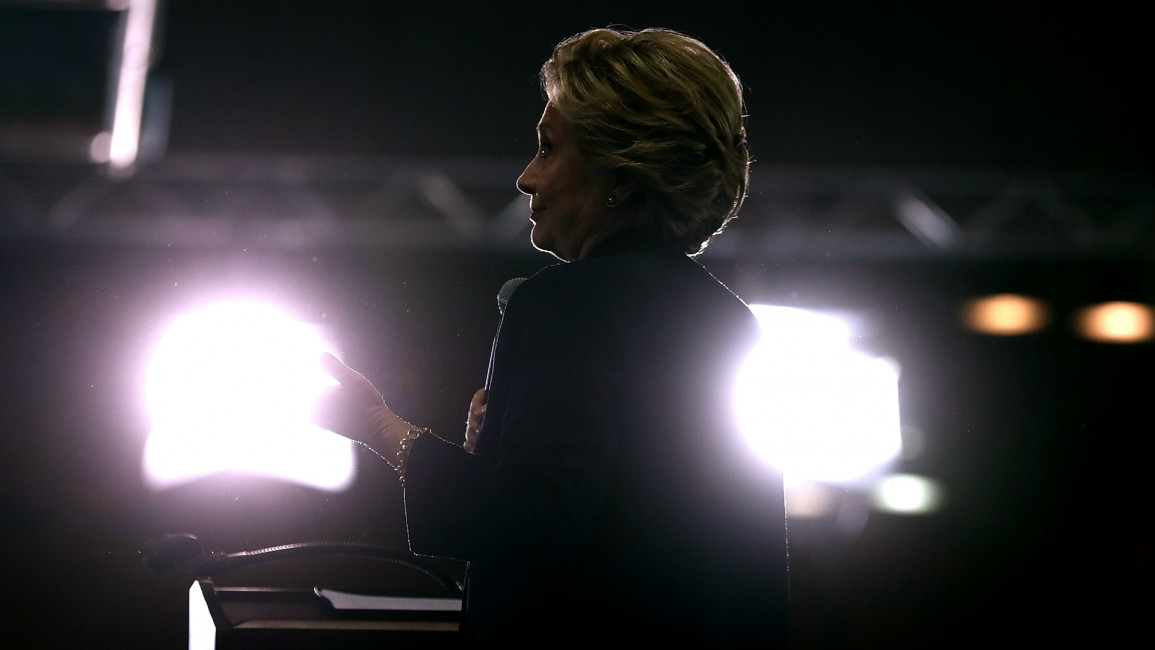Leaked Clinton email posits Peshmerga role inside Syria
A newly leaked Clinton email mentions that the US considered supporting the incursion of Iraqi Peshmerga forces into Syria to combat the threat posed by the Islamic State.
The email, which appeared on Wikileaks, was written by John Podesta, currently head of Clinton’s presidential campaign, in September 2014, and makes the case for increased US funding to the Peshmerga as the most effective force to combat the Islamic State.
Podesta says, in the leaked email, that by coordinating increased funding to the Peshmerga in Iraq and FSA groups in Syria, the US faced the best chance of inflicting a comprehensive and “tangible defeat” on the Islamic State and preventing “veterans moving on to other countries to facilitate operations by Islamist forces.”
US confidence in Peshmerga
The email at one stage categorically states that if "we (the US) provide advisors and planners, as well as increased close air support for the Peshmerga, these soldiers can defeat ISIL”, envisaging a military plan involving“co-ordination” between the FSA and Peshmerga, with Peshmerga forces moving in on IS’s de-facto capital of Raqaa from the east and FSA forces from the north:
“We will be able to work with the Peshmerga as they pursue ISIL into disputed areas of Eastern Syria, coordinating with FSA troops who can move against ISIL from the North,” states the email adding that by entrusting operations against IS to the Peshmerga and FSA forces Syrian President Bashar al-Assad would be prevented from gaining “an advantage from these operations.”
The revelation of the leaked emails will likely further anger Ankara, which is currently at war with elements of its own Kurdish community, has targetted Kurdish YPG forces in Syria, and is wary of the Peshmerga’s expanding influence.
Clinton and Ankara: a tense relationship
On Tuesday Hillary Clinton was slammed in Turkey’s parliament after the democratic presidential candidate said during a presidential debate with Donald Trump on Sunday, that she not only favoured continuing the Obama administration’s policy of funnelling weapons to the Peshmerga but would also consider extending support to Syrian Kurdish fighters.
“I would consider arming the Kurds. The Kurds have been our best partners in Syria, as well as Iraq. And I know there’s a lot of concern about that in some circles, but they should have the equipment they need so that Kurdish and Arab fighters on the ground are the principal way we take Raqqa after pushing IS out of Iraq,” Clinton said on Sunday
Ankara views the Syrian Kurdish YPG group which has asserted autonomy in several Kurdish areas of Syria as equivalent to the outlawed Kurdistan Worker’s Party (PKK) and refers to the group as terrorists.
Speaking on Tuesday Turkish Prime Minister Binali Yildirim questioned the “morality” of “fighting a terrorist organisation with another terrorist organisation.”
“Isn’t America our ally? Isn’t it our NATO ally? Isn’t it our ally in the region?,” said Yildirim.
“Where in the world have you ever seen this? How moral is it, how ethical is it, how right is it to fight a terrorist organisation with another terrorist organisation, to defeat a terrorist organisation with another terrorist organisation?”
Trump on Syria: "Russia is killing IS"
Elsewhere during Sunday night’s debate, both Clinton and Trump struggled to answer questions regarding how they would solve Syria’s ongoing civil war. When addressed by the question, Clinton reiterated her stance that Bashar al-Assad must be removed as president, while calling for the imposition of a no-fly zone over northern Syria in order to alleviate, in particular, a deadly siege on rebel-held east Aleppo, that has seen hundreds killed since a US-Russian brokered ceasefire ended in September.
For his part Trump distanced himself from comments made by his running-mate Indiana governor Mike Pence who implied, in an interview with CNN last week, that the US should meet Russian “provocations” with strength, backing the use of military force against the regime of Bashar al-Assad if ultimately necessary in order to prevent the “humanitarian crisis that is taking place in Aleppo” from escalating.
However, on Sunday Trump stated simply that he disagreed with his running mate. Whilst failing to articulate a clear policy the business tycoon implied that he did not view Moscow as part of the problem in Syria. Appearing to praise Moscow’s intervention in Syria, Trump instead said “Russia is killing IS … Syria (the Bashar al-Assad regime) is fighting IS.”
Seeking to counter Trump at the time, Clinton responded that Russian intervention had not been aimed at targeting the threat of IS but “keeping Assad in power.”



